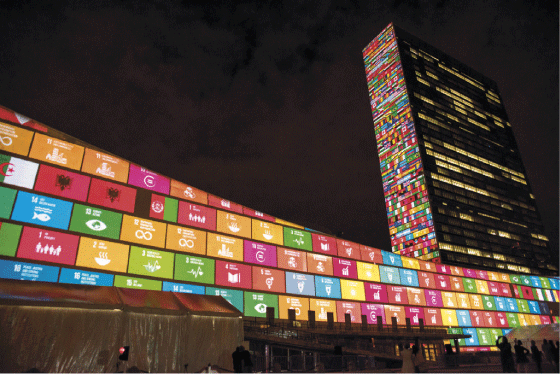2 A challenging global situation
The road towards the overarching goal of a world free of poverty is not without obstacles. Although living conditions have improved for many people in recent decades, we still face major challenges in the years ahead.
The world order that has been built since the Second World War is being challenged. In some instances, we are seeing the erosion of respect for agreed international rules. Fundamental principles such as freedom of the press, freedom of expression and freedom of assembly are being threatened.
Technological developments, new means of communication and digitisation have made the world smaller. War and conflict, security issues, climate change and pandemics have consequences that extend far beyond national and regional borders. Global security challenges and the impacts of climate change, environmental degradation and unsustainable use of natural resources impede development and keep people in poverty.

Figure 2.1 The Sustainable Development Goals projected onto the UN headquarters in New York.
Photo: UN Photo/Cia Pak
Every year millions of young people in Africa and the Middle East will be ready to enter a labour market that is unable to absorb them. Unless the development process gets onto a more positive track, these demographic developments can seriously threaten the achievement of the SDGs.
Urbanisation and the fact that the majority of the world’s population now live in towns and cities makes it necessary to take a new approach to development and poverty reduction. These trends also have an impact on our efforts to prevent and respond to humanitarian crises.
Globalisation and international trade have been crucial for the reduction we have seen in poverty. At the same time, not everyone has benefited from these developments. The International Monetary Fund (IMF) has pointed out that disparities and tensions could impede further economic growth.
The international community has adopted the SDGs at the global level. Follow-up at country level requires strong political will and commitment, and the ability to deal with socio-cultural factors and conflicts of interests that could potentially hinder implementation.